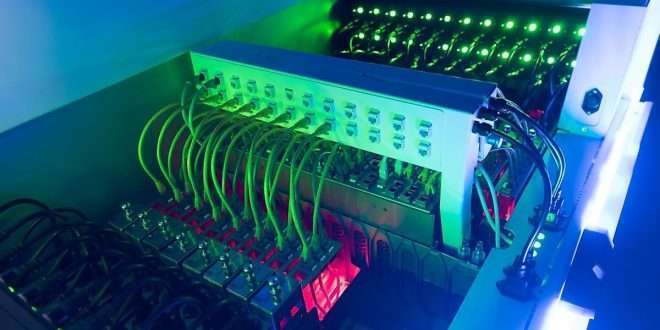In the fast-paced world of technology, the demand for dedicated server hosting has soared, and with it, the need for energy-efficient solutions has become paramount. Liquid cooling has emerged as a cutting-edge technology that not only ensures optimal performance but also reduces energy consumption significantly. In this comprehensive blog, we will take a deep dive into liquid cooling solutions for energy-efficient dedicated server hosting, exploring the latest innovations post-2021.
Understanding the Basics of Liquid Cooling
Liquid cooling, also known as water cooling, is a revolutionary method of dissipating heat from computer components, such as CPUs and GPUs, by using a liquid coolant. This process is more efficient than traditional air cooling methods and involves circulating the coolant through specialized channels to absorb heat. The heated liquid then travels to a radiator where it releases the heat, and the cooled liquid returns to the components, completing the cycle.
The Evolution of Liquid Cooling in Data Centers
The history of liquid cooling dates back to the 1960s when it was first used to cool mainframe computers. However, over the years, advancements in technology have led to significant improvements in liquid cooling solutions, making them more viable for modern data centers. Today, liquid cooling has become an essential component of energy-efficient server hosting, allowing for higher computing densities and reduced environmental impact.
Advantages of Liquid Cooling for Data Centers
Enhanced Energy Efficiency
Liquid cooling offers superior heat dissipation, resulting in reduced energy consumption compared to traditional air cooling methods. By maintaining optimal operating temperatures, liquid cooling ensures that servers operate at peak efficiency, ultimately leading to cost savings for data center operators.
Increased Computing Density
With the ability to manage higher heat loads, liquid cooling allows for greater computing density within data centers. This means more servers can be housed in a limited space, optimizing the utilization of resources and contributing to space-saving initiatives.
Quieter Operations
Liquid cooling eliminates the need for noisy fans commonly found in air-cooled systems. As a result, data centers can enjoy a quieter working environment, making it more pleasant for both employees and clients.
Types of Liquid Cooling Systems
Direct-to-Chip Liquid Cooling (D2C)
D2C cooling involves placing a cooling plate directly in contact with the heat-generating components, such as CPUs and GPUs. The liquid coolant absorbs the heat directly from the chips, efficiently removing it from the source.
Immersion Cooling
In immersion cooling, the entire server or IT equipment is submerged in a non-conductive liquid coolant. This method provides excellent thermal conductivity, ensuring efficient heat dissipation from all components.
Rear Door Heat Exchanger (RDHx)
RDHx is a liquid cooling solution installed on the rear door of server racks. It acts as a supplementary cooling system, dissipating the heat from the servers before it is released into the data center environment.
The Impact on Environmental Sustainability
The adoption of liquid cooling solutions contributes significantly to data center sustainability efforts. By reducing energy consumption and operating more efficiently, these systems play a vital role in minimizing the carbon footprint of data centers. As the demand for data processing continues to grow, liquid cooling emerges as a key solution in creating a greener and more sustainable future.
Addressing Concerns: Leaks and Maintenance
Some data center operators may express concerns about the potential for leaks in liquid cooling systems. However, modern liquid cooling solutions are engineered with leak-resistant designs, and rigorous testing ensures their reliability. Additionally, regular maintenance and monitoring protocols can detect and prevent any potential issues, offering peace of mind to operators.
Liquid Cooling in High-Performance Computing (HPC)
Liquid cooling has found extensive application in high-performance computing environments. HPC systems generate substantial heat during resource-intensive tasks, and liquid cooling provides the ideal solution for efficiently managing this heat load. As industries rely more on HPC for data analysis and simulations, liquid cooling becomes indispensable for ensuring smooth and uninterrupted operations.
The Future of Liquid Cooling in Dedicated Server Hosting
The landscape of dedicated server hosting is continually evolving, and liquid cooling remains at the forefront of this transformation. As data centers strive for greater energy efficiency, reduced operational costs, and increased computing density, liquid cooling solutions will undoubtedly play a crucial role in shaping the future of the industry.
Final Words
Liquid cooling solutions have ushered in a new era of energy-efficient dedicated server hosting. With their ability to dissipate heat more effectively, increase computing density, and promote environmental sustainability, these innovative technologies are reshaping the data center landscape. As technology advances and demands continue to rise, liquid cooling is set to become an integral part of data center operations, offering unparalleled benefits for businesses and the planet alike.
Commonly Asked Questions:
1. Is liquid cooling more expensive than air cooling?
While liquid cooling systems may have higher upfront costs, they offer long-term savings through reduced energy consumption and increased server lifespan.
2. Are liquid cooling systems safe for data centers?
Yes, modern liquid cooling systems are designed with safety in mind and undergo rigorous testing to ensure leak-resistant performance.
3. Can liquid cooling handle high-performance computing workloads?
Absolutely! Liquid cooling is highly effective in managing the substantial heat generated by resource-intensive tasks in high-performance computing environments.
4. How does liquid cooling benefit environmental sustainability?
Liquid cooling significantly reduces energy consumption, contributing to lower carbon emissions and a greener data center ecosystem.
5. Are liquid cooling systems compatible with all server types?
Liquid cooling solutions are adaptable and can be customized to suit various server configurations, making them compatible with a wide range of server types.
 webfily
webfily



